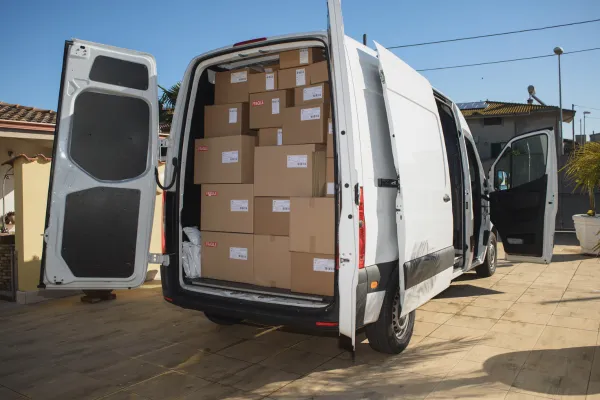
Why Law Offices Need Time-Critical Courier Services
In the legal world, deadlines aren’t mere suggestions—they’re firm requirements. Miss a filing cutoff or mishandle evidence, and the consequences can include sanctions, lost claims, or even malpractice exposure. For law offices juggling urgent motions, confidential agreements, and critical evidence transfers, standard overnight shipping simply isn’t enough. Time-critical courier services—offering same-day and rush deliveries—have become indispensable. This guide explores why, and how your firm can leverage these specialized services to stay compliant, efficient, and secure.
1. Strict Court Filing Deadlines
Legal filings operate under unyielding schedules dictated by rules like the Federal Rules of Civil Procedure (FRCP). Documents such as complaints, oppositions, and appeals must be filed “[within a specified time]” or risk dismissal . Local courts often impose additional cut-offs—3:00 PM, for instance, for same-day filings.
Avoiding Sanctions: Late filings can bring monetary fines or adverse judgments.
No “Grace Period”: Courts rarely grant extensions; they expect punctuality.
Proof of Delivery: Time-critical couriers provide digital signatures and timestamps, ensuring indisputable evidence of on-time submission.
2. Preserving Evidence Integrity
Whether it’s original contracts, physical exhibits, or digital storage media, the integrity of evidence is non-negotiable. Any unexplained gap in the chain of custody can lead to evidentiary challenges or exclusion from trial.
Documented Hand-Offs: Each transfer—from law clerk to courier to courthouse clerk—is recorded with date-time stamps and handler identification.
Tamper-Evident Seals: Special packaging that shows if contents have been opened or tampered with.
Digital Audit Trails: Advanced couriers even leverage blockchain or encrypted logs to create immutable records of every movement .
3. Protecting Client Confidentiality
Legal documents routinely contain privileged or sensitive information. Ethical rules (e.g., ABA Model Rule 1.6) require attorneys to take “reasonable steps” to safeguard client data.
Secure Vehicles: GPS-tracked vans with lockable, partitioned storage ensure documents never leave courier custody unsupervised.
Vetted Personnel: Drivers and handlers undergo background checks, training, and sign non-disclosure agreements.
Encrypted Notifications: Real-time updates—via encrypted SMS or email—keep your team informed without exposing document contents.
4. Flexibility for Last-Minute Needs
Court calendars shift, emergencies arise, and opposing counsel may file surprise motions. Law offices need a partner who can pivot at a moment’s notice.
24/7 Availability: Time-critical couriers often operate outside standard business hours—including nights, weekends, and holidays.
On-Demand Dispatch: Request pickups with just a phone call or a few clicks in a mobile app.
Real-Time Rerouting: Dispatchers and drivers adapt quickly when a deadline moves or a new destination is added.
Tip: Maintain a standing retainer with your courier so you can bypass paperwork when urgency strikes.
5. Technology Ensures Transparency
Modern courier platforms use technology to deliver visibility and control:
GPS Tracking: View live vehicle locations and estimated arrival times on a secure dashboard.
Delivery Alerts: Automatic SMS/email notifications for pickup, in-transit updates, and successful drop-off.
Mobile Proof of Delivery: Electronic signatures, timestamped photos, and instant status updates confirm receipt.
For logistics technology insights, see Logistics Management’s guide.
6. Balancing Cost Against Risk
While rush delivery carries a premium, the financial and reputational risks of missed deadlines or compromised evidence often far exceed courier fees.
Predictable Pricing: Many couriers offer flat-rate or retainer agreements to manage costs.
Liability Coverage: Specialized insurance for legal documents and evidence protects your firm in the event of loss or damage.
ROI Perspective: A $75 rush courier fee pales compared to the thousands in court sanctions, malpractice claims, or lost client trust resulting from a late filing.
7. Real-World Success Stories
Case Study 1: High-Profile Merger Documents
A corporate law department in Los Angeles needed original merger documents delivered to counterpart negotiators in New York within hours. Express Courier Services arranged a dedicated same-day run:
Driver dispatched within 30 minutes.
Tamper-evident seals and GPS tracking ensured security.
Documents arrived in under 6 hours, preserving the deal timetable.
Case Study 2: Emergency Evidence Transfer
During a crucial appeal, new DNA evidence had to reach appellate counsel by day’s end. Our team handled:
Secure packaging with chain-of-custody logs.
Route adjustments around midday traffic via real-time traffic feeds.
On-time delivery by 4:30 PM—well before the evening deadline.
8. Best Practices for Law Office Logistics
Standardize Your Workflow: Document every step—packaging, labeling, pickup requests, and confirmations.
Train Your Team: Ensure paralegals and administrative staff understand cut-offs, packaging rules, and how to book urgent pickups.
Audit Performance: Review on-time rates, exception logs, and delivery feedback monthly to refine processes.
Maintain Backup Options: Have secondary courier agreements in place for peak periods or service disruptions.
Collect Feedback: Use short post-delivery surveys to identify pain points and drive continuous improvements.
9. Choosing the Right Courier Partner
When evaluating providers, consider:
Legal Industry Experience: Familiarity with courthouses, local rules, and specialized handling.
Guaranteed Service Levels: SLAs that promise delivery windows and financial remedies for missed deadlines.
Security & Compliance: Background-checked personnel, secure vehicle protocols, and alignment with ABA and privacy regulations.
Technology Integration: Real-time tracking, API connectivity for automated pickup/labeling, and mobile proof-of-delivery.
Local Presence: Micro-hubs near key courthouses enable sub-hour dispatch times.
At Express Courier Services, we specialize in rush legal deliveries—blending rigorous security, transparent technology, and deep local expertise.
10. Future Trends in Legal Courier Services
Autonomous Delivery: Early pilots for unmanned, secure deliveries in urban cores.
Blockchain Audits: Immutable ledgers further strengthening chain-of-custody verifiability.
Green Fleets: Electric and hybrid courier vehicles support firms’ sustainability goals.
AI-Driven Capacity: Predictive analytics forecast demand spikes, optimizing fleet allocation.
Staying abreast of these trends ensures your firm remains competitive and compliant in a rapidly evolving logistics landscape.
Conclusion
In law, time isn’t just money—it’s justice. Time-critical courier services protect your practice from the high costs of late filings, compromised evidence, and confidentiality breaches. By partnering with a specialized provider that offers 24/7 availability, secure handling, and transparent technology, your firm can focus on legal strategy instead of logistics.
Ready to secure your legal deliveries? Contact Express Courier Services today to learn how we tailor time-critical solutions that uphold deadlines, protect your clients, and keep your practice running smoothly.